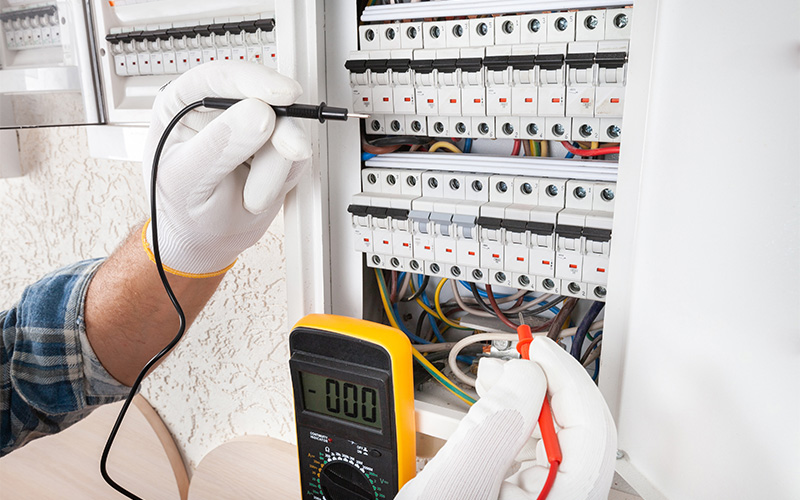Key Takeaways
- Wondering how mechanical vs electrical engineering compares? Mechanical engineering tends to suit those drawn to physical systems and machines, while electrical engineering appeals to those curious about circuits, power, and digital tech.
- Both disciplines offer strong industry relevance, practical training, and various types of engineering careers across sectors like manufacturing, energy, and tech.
- Consider your learning preferences, strengths, and long-term goals when deciding between these two specialisations.
Finding the Right Fit: Mechanical vs Electrical Engineering Explained

When it comes to deciding between mechanical vs electrical engineering, how do you know which is the better fit? You’re not alone—and the good news is, there’s no wrong answer! Both fields offer rewarding careers, but they focus on different aspects of innovation. By exploring the key differences between these engineering specialisations, you’ll get closer to picking a path that suits your goals.
1. What You’ll Work On

When comparing mechanical vs electrical engineering, consider this: are you more interested in designing how things move or how they’re powered and controlled?
If you choose mechanical engineering, expect to work with systems that involve motion, force, and energy. From building engines and designing robotics to improving HVAC systems and contributing to advanced manufacturing processes, mechanical engineers are the minds behind the machines.
In contrast, electrical engineering focuses on circuits, electricity, and digital technologies. Electrical engineers design and optimise systems for power generation, electric vehicles, communications, automation, and more—contributing to Singapore’s efforts in building a Smart Nation.
2. The Tools You’ll Use
The tools in your engineering toolkit will depend on your specialisation. Mechanical engineers often work with Computer-Aided Design (CAD) and Computer-Aided Engineering (CAE) software to model physical systems. They also get hands-on with prototyping, mechanical testing, simulations, and structural analysis tools.
On the other hand, electrical engineering students and professionals work extensively with circuit design software, microcontrollers, and digital signal processors. Programming is also a core skill, especially in areas like automation, smart systems, and robotics.
Whichever path you choose, you'll need curiosity, creativity, and critical thinking, along with a passion for solving real-world problems.
3. Where You Could Work

One of the most exciting aspects of engineering is the sheer range of industries you can enter. With a mechanical engineering degree, you could explore opportunities in fields such as aerospace, automotive, construction, and biomedical technology. These careers often involve improving machinery, streamlining processes, or developing sustainable energy solutions.
Similarly, those with a degree in electrical engineering may find potential pathways in sectors like energy, telecommunications, electronics, and control systems. As the government continues to invest in initiatives like the Singapore Green Plan 2030, there may be growing opportunities in areas such as smart grids, electric mobility, and sustainable energy systems.
4. How to Know Which One Fits You
The decision between mechanical vs electrical engineering begins with a bit of self-reflection.
If you enjoy taking things apart to understand how they work, or if you’re drawn to solving hands-on, physical challenges, mechanical engineering might be the right fit for you. On the other hand, if you're intrigued by how devices function, interested in coding, or curious about automation and smart systems, electrical engineering could align better with your strengths. This path often appeals to those who enjoy working with abstract concepts and emerging technologies.
5. What It’s Like to Study Each
Both disciplines offer a mix of theory, lab work, and industry-relevant training. If you choose the Bachelor of Engineering with Honours in Mechanical Engineering, your curriculum will likely include mechanical science, thermofluid mechanics, and analytical modelling. Expect a strong emphasis on physical systems and prototypes, as well as hands-on experience in designing, developing, and testing mechanical systems and components.
The Bachelor of Engineering with Honours in Electrical and Electronic Engineering, on the other hand, focuses on core electrical engineering concepts like advanced electronics, advanced digital systems, and power systems. Students will also gain practical skills working with semiconductor devices, amplifier and filter circuits, Arduino fundamentals, and microcontrollers.
Both disciplines reflect the demands of modern engineering by integrating sustainability and interdisciplinary collaboration into their curricula, helping students build a future-ready mindset.
Choosing Your Path Forward
The choice between mechanical vs electrical engineering isn’t about which is better—it’s about which one aligns better with your interests and goals. Both are versatile and well-regarded fields, offering diverse opportunities within Singapore’s evolving economy.
At PSB Academy, our engineering courses are designed to prepare you for real-world challenges through practical, hands-on learning. Enrol in our engineering diploma programmes to gain access to a professional network through career mentoring, industry engagement, and site visits supported by the Institution of Engineers Singapore (IES) and the Institution of Engineering and Technology (IET). Upon completion, eligible students may progress directly into the second or third year of a recognised Bachelor’s Degree programme with our university partners. This allows you to build on your foundation and take your education to the next level.
Contact us to explore your options today.




 TOP
TOP



_2.png)

